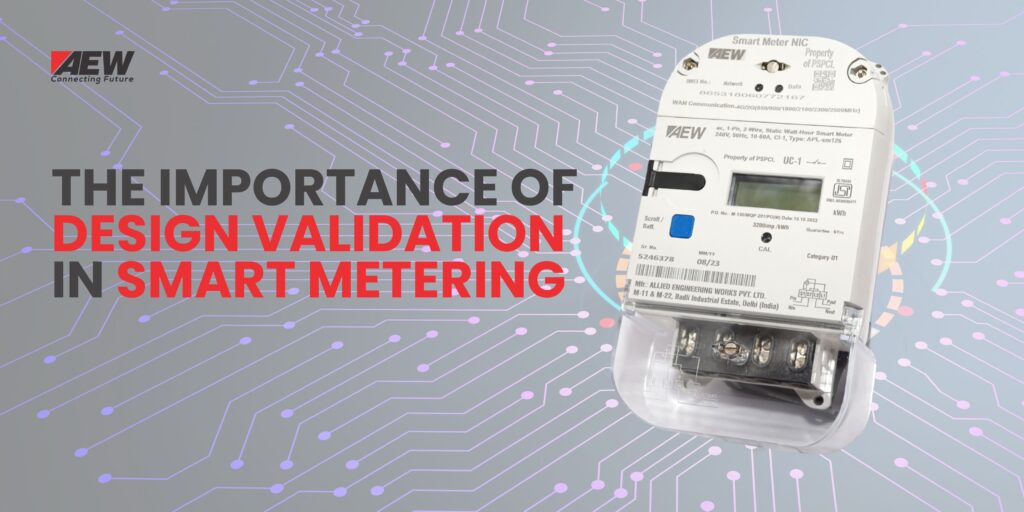Understanding Design Validation in Smart Metering:
In the fast-paced world of smart metering, Design Validation is pivotal. It ensures the accuracy, reliability, and enduring performance of these vital energy management devices.
Rigorous validation process Empower:
- This exploration delves into the significance of design validation in smart metering.
- By emphasizing its impact on fostering reliable and efficient energy management.
Ensuring Accuracy and Precision:
Meters undergo rigorous testing to ensure precise energy consumption measurements, providing reliable billing data to utility companies. Validation processes identify and rectify any potential errors or inaccuracies, enabling accurate energy consumption monitoring and fair billing for consumers.
Enhancing Data Integrity:
Design validation is critical for maintaining data integrity in smart meters. Rigorous tests, covering data transmission, encryption, and secure protocols, ensure manufacturers safeguard the confidentiality and integrity of energy consumption data. This installs confidence in utility providers and consumers, promoting trust and enabling data-driven decision-making.
Optimizing Performance and Reliability:
Thorough validation processes enable manufacturers to optimize the performance and reliability of smart meters. By simulating real-world operating conditions, meters undergo rigorous testing to ensure their robustness and durability. This checking helps find any problems in how the design works, where it might slow down, or if it works well with other things. Manufacturers fix these issues before making a lot of them. The result is a more reliable and long-lasting smart metering infrastructure.
Mitigating Security Risks:
Making sure the design works right is really important for keeping smart meters safe. As these meters gather and disseminate private energy data, it is vital to ensure strong security. The checking process looks at how well encryption, authentication, and protection against cyber threats work. Focusing on security in the design validation process enables smart meter makers to safeguard personal data and ensure the energy grid’s protection.
Compliance with Industry Standards:
Design validation ensures compliance with industry standards and regulations in the smart metering field. The performance, accuracy, and safety requirements for meters can be met by manufacturers providing proof that their meters meet specified guidelines for validation testing.
Compliance Bolsters Manufacturer Legality and Enhances Interoperability in Smart Metering Systems for Seamless Energy Infrastructure Integration.
Conclusion:
A key component of smart metering is design validation, which ensures precise readings, data integrity, and general dependability. Thorough validation processes optimize performance, mitigate security risks, and ensure compliance with industry standards.
Allied Engineering Works Pvt Ltd can manufacture superior smart metering solutions that give utility providers and consumers reliable and efficient energy management capabilities by investing in thorough design validation.



